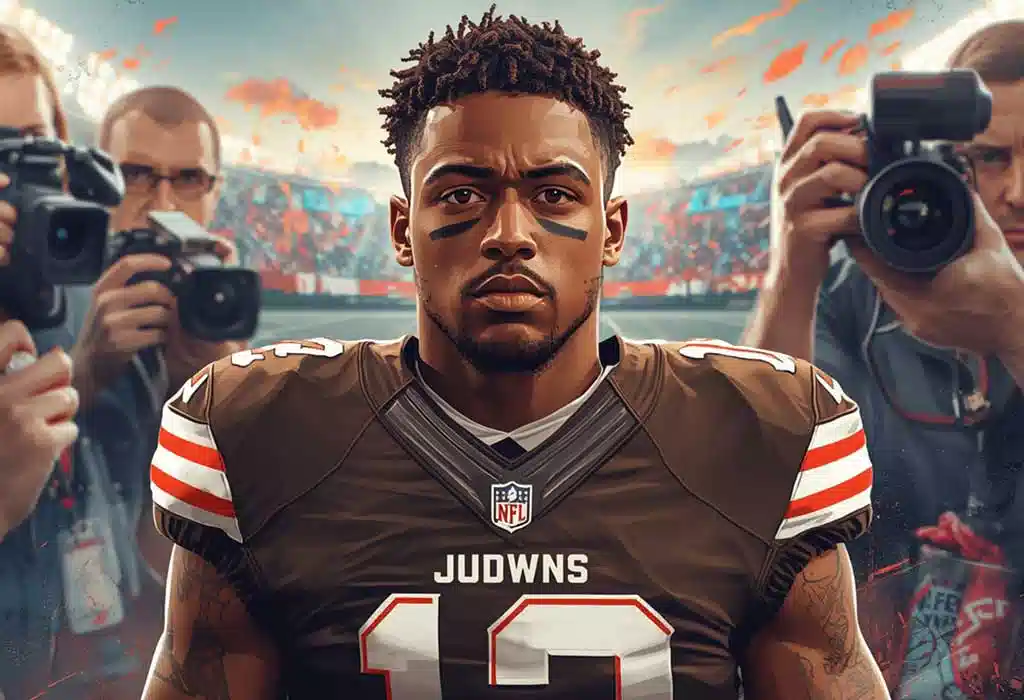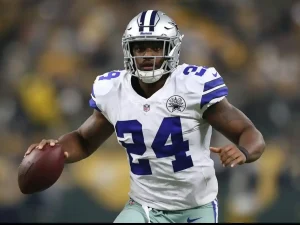Prosecutors Decline to Pursue Battery and Domestic Violence Case Against Browns Rookie Judkins

Browns Rookie
The Legal and Ethical Crossroads for the Browns Rookie: Navigating the NFL’s Personal Conduct Policy
The decision by Broward County prosecutors to drop the misdemeanor battery and domestic violence charges against Cleveland Browns rookie running back Quinshon Judkins represents not an endpoint, but rather the beginning of a complex and high-stakes procedural journey dictated by the NFL’s powerful Personal Conduct Policy. While the legal system operates on the foundational principle of “innocent until proven guilty” and requires evidence that proves guilt beyond a reasonable doubt, the NFL’s internal disciplinary framework operates under a significantly lower standard of proof. The league’s policy explicitly states that a player can be subject to discipline even if no criminal charges are filed or a conviction is not obtained, as its purpose is to protect the league’s integrity and public形象, not to adjudicate legal guilt. The league office will now launch its own independent investigation into the July 14 incident near the Fort Lauderdale airport. They will scrutinize the same evidence the prosecutor found insufficient—the delayed report, the conflicting videos, and the victim’s photos of injuries—but through a different lens. The memo from the assistant state attorney, which noted that the injuries “could be explained by either account of the incident,” provides a sliver of exculpatory context for Judkins but also confirms a physical altercation of some nature did occur. For the Browns rookie, this means his professional fate is no longer in the hands of a court of law but in the hands of NFL Commissioner Roger Goodell or his designated appointees. A suspension, even a short one, could derail his critical first-year integration into the team’s offense, cost him valuable game checks, and cast a long shadow over the early stages of his career, demonstrating that the court of public opinion and league justice often operates on a separate track from the judicial system.
The On-Field Implications for the Browns Rookie in a Crowded and Critical Backfield
Beyond the looming specter of league discipline, Quinshon Judkins’ arrest and its subsequent fallout create a palpable and immediate football problem for both the player and the Cleveland Browns organization. The team invested a high-value draft pick—the 36th overall selection—in Judkins with the explicit intention of him becoming the cornerstone of their rushing attack following the departure of franchise icon Nick Chubb to the Houston Texans. A rookie’s first training camp is arguably the most critical period of his professional development; it is where playbooks are mastered, timing with the offensive line is honed, and trust with coaches and quarterbacks is built through consistent, focused repetition. Any off-field distraction, especially one of this serious nature, inherently disrupts this vital process. While the charges are dropped, the incident itself and the ongoing NFL investigation create a media circus and a mental burden that can impede a young player’s ability to fully concentrate on the formidable task of transitioning to the NFL. Furthermore, this situation provides a signifcant opening for his competition within the running back room. The Browns also drafted Dylan Sampson in the fourth round, and other veterans on the roster will now see increased reps and a clearer path to claiming a significant role. Every practice rep Judkins misses due to distraction or a potential future suspension is an opportunity for another back to solidify their standing. For a Browns rookie expected to be an immediate impact player, this off-field issue has directly translated into on-field professional vulnerability, placing immense pressure on him to demonstrate not only his physical talent but also a level of maturity and focus that can reassure the coaching staff and front office of their investment.
The Public Relations Calculus: Managing the Narrative Around a Promising Browns Rookie
In the modern sports landscape, an athlete’s value is intrinsically linked to their marketability and public perception, making the court of public opinion a powerful force that teams must actively manage. For the Cleveland Browns and their new rookie, the dropped charges, while a legal victory, are only the first step in a necessary public relations campaign to rehabilitate his image. The initial arrest report, which inevitably circulated widely across sports news platforms and social media, creates a narrative that can be difficult to fully erase, regardless of the legal outcome. The mere association with the words “arrest” and “domestic violence” triggers justifiable public concern and can alienate a segment of the fanbase and, crucially, potential corporate sponsors who are increasingly wary of aligning their brands with controversy. The Browns’ public relations and player development staff now face the delicate task of guiding Judkins through this process. This likely involves a combination of strategic public statements expressing gratitude for the legal process while maintaining respect for all involved, a demonstrated commitment to community service or related educational initiatives, and a consistent display of professionalism on and off the field. The ultimate goal is to shift the narrative away from the July incident and toward his future as a dedicated athlete and positive community member. His performance on the field will be a major factor—excelling in his role can quickly endear him to fans—but off-field comportment is equally important. For a Browns rookie carrying the expectations of a high draft pick, proving his character and winning back any lost trust becomes an unofficial but essential part of his job description, a secondary game he must play successfully to secure his long-term place in the league and in the city of Cleveland.

Reference Website:
https://edition.cnn.com/2025/08/14/sport/football-nfl-quinshon-judkins




